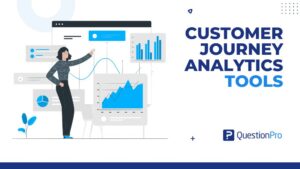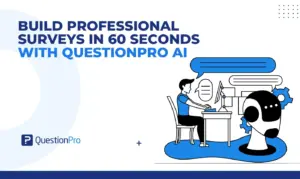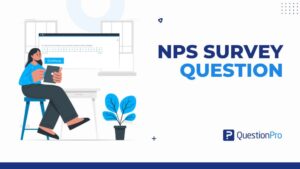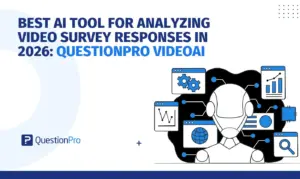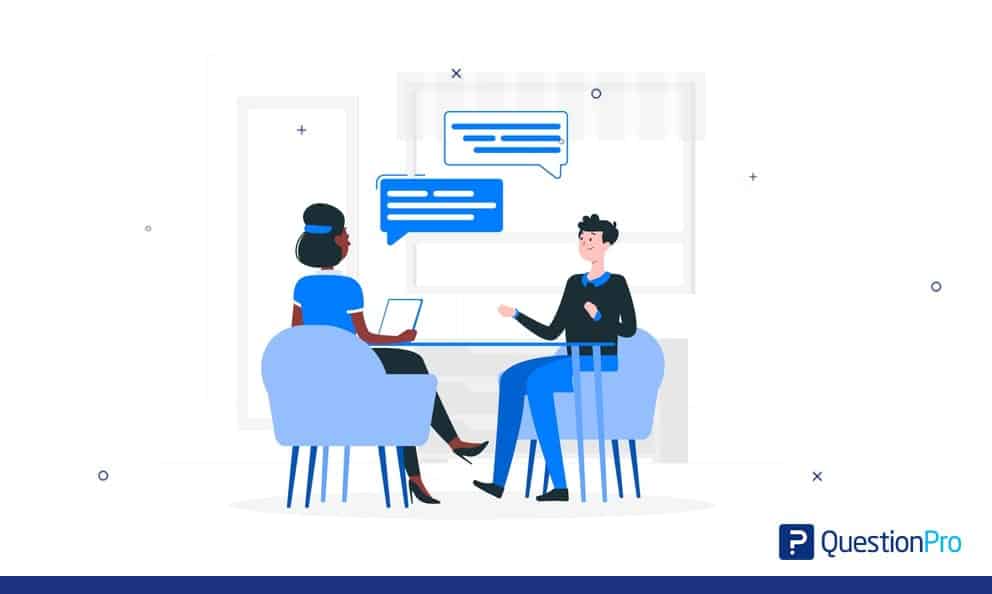
Online surveys, user review sites and focus groups can be great methods for collecting data. However, another method of gathering data that is sometimes overlooked are the in-depth interviews.
All of these methods can be used in your comprehensive customer experience management strategy, but in-depth interviews can help you collect data that can offer rich insights into your target audience’s experience and preferences from a broad sample.
In this article you will discover the main characteristics of in-depth interviews as a great tool for your qualitative research and gather better insights from your objects of study.
What are in-depth interviews?
In-depth interviews are a qualitative data collection method that allows for the collection of a large amount of information about the behavior, attitude and perception of the interviewees.
LEARN ABOUT: Best Data Collection Tools
During in-depth interviews, researchers and participants have the freedom to explore additional points and change the direction of the process when necessary. It is an independent research method that can adopt multiple strategies according to the needs of the research.
Characteristics of in-depth interviews
There are many types of interviews, each with its particularities, in this case the most important characteristics of in-depth interviews are:
- Flexible structure: Although it is not very structured, it covers a few topics based on a guide, which allows the interviewer to cover areas appropriate for the interviewee.
- Interactive: The interviewer processes the material that is produced during the interview. During the interaction the interviewer poses initial questions in a positive manner, so that the respondent is encouraged to answer. The complete process is very human, and so less mundane and dull.
- Deep: Many probing techniques are used in in-depth interviews, so that results are understood through exploration and explanation. The interviewer asks follow-up questions to gain a deeper perspective and understand the participant’s viewpoint.
- Generative: Often interacting with your target audience creates new knowledge. For instance, if you are talking to your customers, you learn more about the purchase behavior. Researchers and participants present ideas for a specific topic and solutions to the problems posed.
To learn more about the characteristics of in-depth interviews, check out our blog on interview questions.
Importance of conducting in-depth interviews
As an in-depth interview is a one-on-one conversation, you get enough opportunities to get to the root causes of likes/dislikes, perceptions, or beliefs.
Generally, questions are open-ended questions and can be customized as per the particular situation. You can use single ease questions. A single-ease question is a straightforward query that elicits a concise and uncomplicated response. The interviewer gets an opportunity to develop a rapport with the participant, thereby making them feel comfortable. Thus, they can bring out honest feedback and also note their expressions and body language. Such cues can amount to rich qualitative data.
LEARN ABOUT: Selection Bias
With surveys, there are chances that the respondents may select answers in a rush, but in case of in-depth interviews it’s hardly the worry of researchers.
Conversations can prove to be an excellent method to collect data. In fact, people might be reluctant to answer questions in written format, but given the nature of an interview, participants might agree giving information verbally. You can also discuss with the interviewees if they want to keep their identity confidential.
In-depth interviews are aimed at uncovering the issues in order to obtain detailed results. This method allows you to gain insight into the experiences, feelings and perspectives of the interviewees.
When conducting the initial stage of a large research project, in-depth interviews prove to be useful to narrow down and focus on important research details.
When you want to have the context of a problem, in-depth interviews allow you to evaluate different solutions to manage the research process while assisting in in-depth data analysis.
LEARN ABOUT: Research Process Steps
Steps to conduct in-depth interviews
- Obtain the necessary information about the respondents and the context in which they operate.
- Make a script or a list of topics you want to cover. This will make it easy to add secondary questions.
- Schedule an interview at a time and date of the respondent’s choice.
- Ask questions confidently and let the interviewees feel comfortable, so that they too are confident and can answer difficult questions with ease.
- Set a maximum duration such that it doesn’t feel exhaustive.
- Observe and make notes on the interviewee’s body expressions and gestures.
- It is important to maintain ethics throughout the process.
- Transcribe the recordings and verify them with the interviewee.
Advantages of in-depth interviews
The benefits of conducting an in-depth interview include the following:
- They allow the researcher and participants to have a comfortable relationship to generate more in-depth responses regarding sensitive topics.
- Researchers can ask follow-up questions, obtain additional information, and return to key questions to gain a better understanding of the participants’ attitudes.
- The sampling is more accurate than other data collection methods.
- Researchers can monitor changes in tone and word choice of participants to gain a better understanding of opinions.
- Fewer participants are needed to obtain useful information.
- In-depth interviews can be very beneficial when a detailed report on a person’s opinion and behavior is needed. In addition, it explores new ideas and contexts that give the researcher a complete picture of the phenomena that occurred.
Disadvantages
The disadvantages of in-depth interviews are:
- They are time-consuming, as they must be transcribed, organized, analyzed in detail.
- If the interviewer is inexperienced, it affects the complete process.
- It is a costly research method compared to other methods.
- Participants must be chosen carefully to avoid bias, otherwise it can lengthen the process.
- Generally, participants decide to collaborate only when they receive an incentive in return.
LEARN ABOUT: Self-Selection Bias
What is the purpose of in-depth interviews?
The main purpose of in-depth interviews is to understand the consumer behavior and make well-informed decisions. Organizations can formulate their marketing strategies based on the information received from the respondents. They can also gain insights into the probable demand and know consumer pulse.
In the case of B2B businesses, researchers can understand the demand in more detail and can ask questions targeted for the experts. Interviews offer a chance to understand the customer’s thought process and design products that have higher chances of being accepted in the market.
LEARN ABOUT: 12 Best Tools for Researchers
Final words
An in-depth interview should follow all the steps of the process to collect meaningful data. Hope this blog helps you decide whether you should conduct a detailed interview with your target audience, keeping in mind the pros and cons of it.
If you want to get started with conducting research online, we suggest using an online survey software that offers features like designing a questionnaire, customized look and feel, distributing to your contacts and data analytics. Create an account with QuestionPro Surveys and explore the tool. If you need any help with research or data collection, feel free to connect with us.




